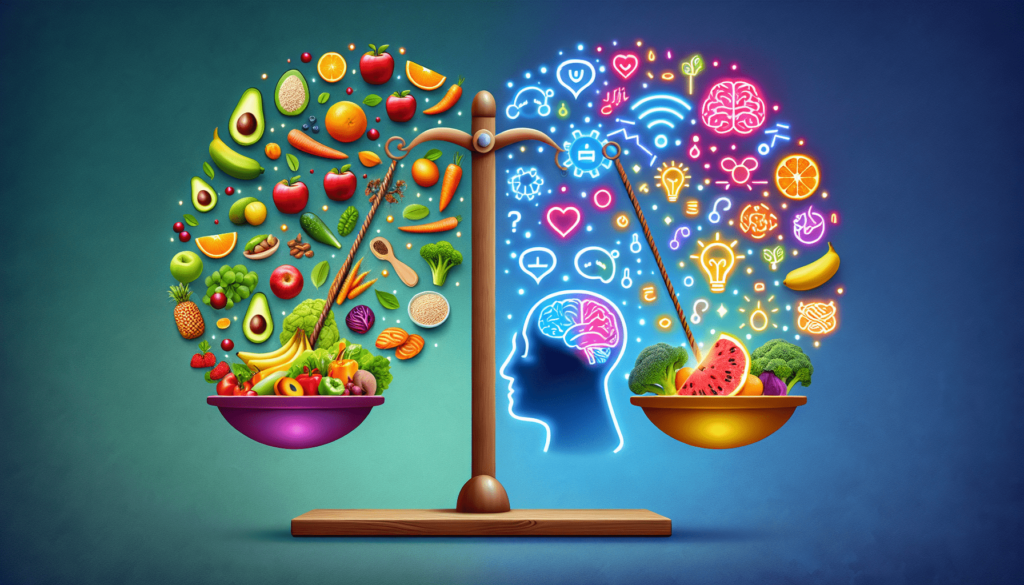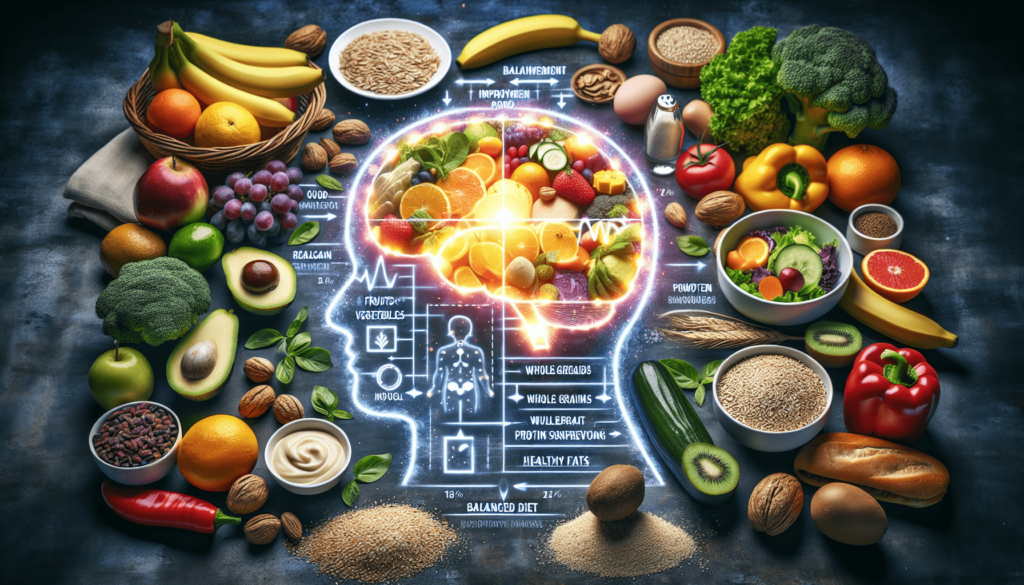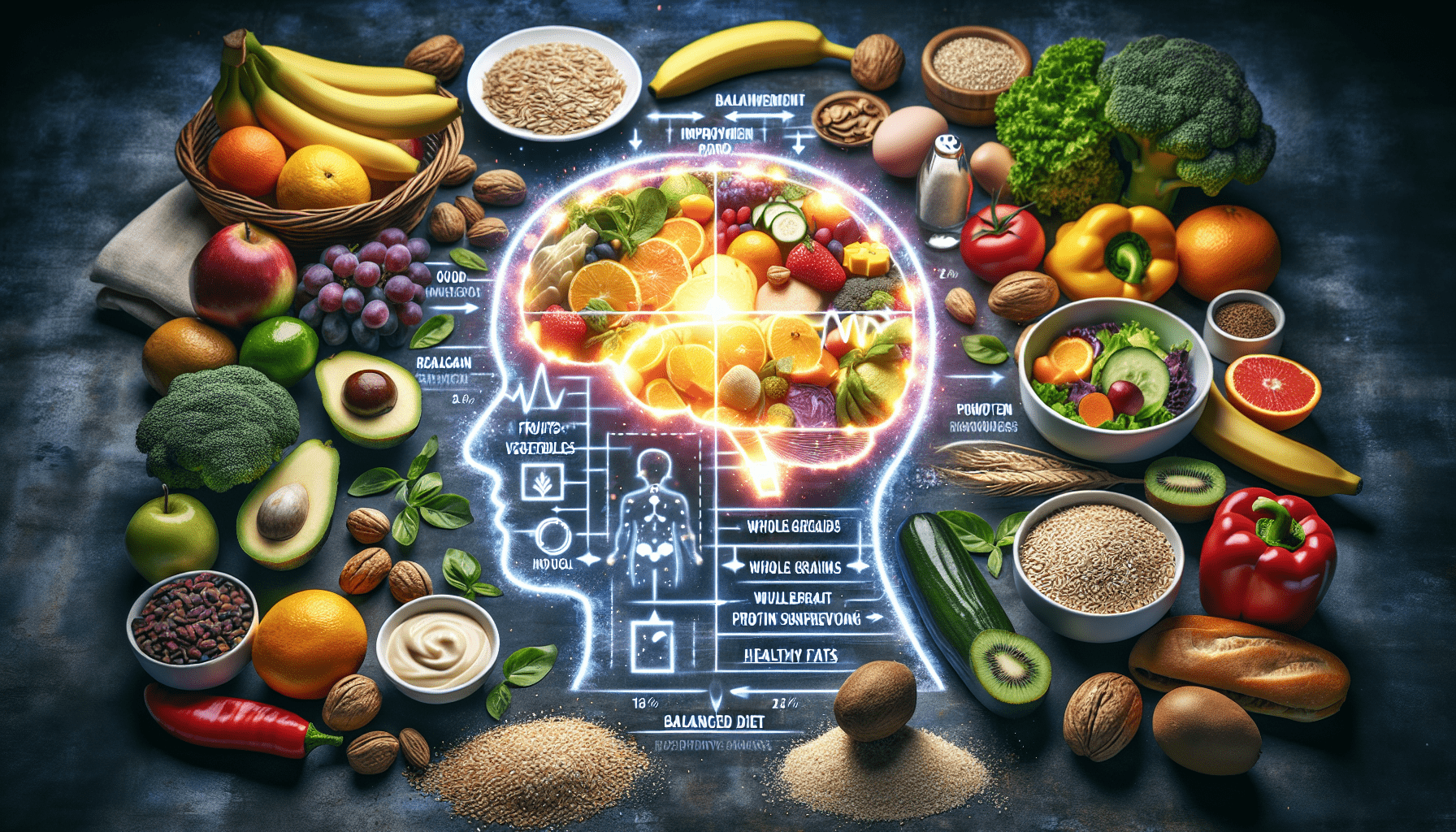In today’s fast-paced world, it’s easy to overlook the importance of nutrition in maintaining good mental health. However, research has shown that what we eat not only affects our physical well-being but also has a significant impact on our mental well-being. By nourishing our bodies with the right nutrients, we can support our brain function, mood, and overall mental resilience. In this article, we will explore the vital role of nutrition in mental health and discover how making mindful choices about what we consume can positively influence how we feel and think.
The Connection Between Nutrition and Mental Health
As you may already know, nutrition plays a crucial role in our overall health and well-being. But did you know that it also has a significant impact on our mental health? The food we eat not only fuels our bodies but also affects our brain function, mood, and overall mental well-being.
The impact of diet on brain function
Just like any other organ in our body, the brain requires certain nutrients to function optimally. Without these essential nutrients, our brain may suffer from impaired cognitive function and even mental health issues. Studies have shown that a poor diet, high in processed foods and sugar, can lead to cognitive decline, poor memory, and even increase the risk of mental disorders.
The link between nutrient deficiencies and mental health issues
Nutrient deficiencies can have a profound effect on our mental health. For example, omega-3 fatty acids are crucial for brain health and have been found to play a role in reducing symptoms of depression and anxiety. Vitamin D, often referred to as the “sunshine vitamin,” is essential for mood regulation, and its deficiency has been linked to an increased risk of depression. B vitamins, on the other hand, influence neurotransmitter function and deficiencies have been associated with mental health conditions such as schizophrenia.
The role of gut health in mental well-being
You may be surprised to learn that the health of your gut is closely linked to your mental well-being. The gut-brain axis, a bidirectional communication system between the gut and the brain, plays a significant role in our mental health. The gut is home to millions of bacteria, collectively known as the gut microbiota, that have a profound impact on our overall health, including our mental well-being. Imbalances in the gut microbiota have been linked to various mental health conditions, including depression, anxiety, and even autism.

Nutrients Essential for Mental Health
Now that we understand the connection between nutrition and mental health, let’s dive deeper into some of the essential nutrients that are vital for optimal brain function and mental well-being.
Omega-3 fatty acids and their role in brain health
Omega-3 fatty acids, particularly EPA and DHA, are essential for brain health. These fatty acids are found in abundance in fatty fish such as salmon, mackerel, and sardines. Research has shown that omega-3 fatty acids play a crucial role in reducing inflammation in the brain, improving mood, and even reducing the risk of mental disorders, including depression and bipolar disorder. If you’re not a fan of fish, you can also find omega-3 fatty acids in walnuts, flaxseeds, and chia seeds.
Vitamin D and its impact on mood regulation
Vitamin D, often referred to as the sunshine vitamin, is not only essential for strong bones but also plays a vital role in mood regulation. Our bodies can produce vitamin D when exposed to sunlight, but many people are deficient in this important nutrient. Research has shown that low levels of vitamin D are associated with an increased risk of depression. To ensure you’re getting enough vitamin D, spend time outdoors, especially during the sunnier months, and consider incorporating vitamin D-rich foods like fatty fish, fortified dairy products, and eggs into your diet.
B vitamins and their influence on neurotransmitter function
B vitamins, including vitamins B6, B12, and folate, are involved in the production and regulation of neurotransmitters, which are chemical messengers in the brain. These vitamins help promote the synthesis of serotonin, dopamine, and other neurotransmitters that play a crucial role in mood regulation. Deficiencies in B vitamins have been linked to depression, anxiety, and cognitive decline. To ensure you’re getting enough B vitamins, incorporate foods such as leafy green vegetables, legumes, whole grains, and lean meats into your diet.

The Mediterranean Diet and Mental Health
One dietary pattern that has gained considerable attention for its positive impact on mental health is the Mediterranean diet. Let’s take a closer look at the Mediterranean diet and how it can benefit your mental well-being.
Overview of the Mediterranean diet
The Mediterranean diet is inspired by the traditional dietary patterns of countries bordering the Mediterranean Sea. It is characterized by an abundance of fruits, vegetables, whole grains, legumes, nuts, seeds, olive oil, and moderate amounts of fish, poultry, and dairy products. Red meat and processed foods are limited in this eating pattern.
Benefits of the Mediterranean diet for mental health
Numerous studies have shown that following a Mediterranean diet is associated with a lower risk of depression and other mental health conditions. The abundance of plant-based foods rich in antioxidants, vitamins, and minerals in this diet may help reduce inflammation in the brain and support overall mental well-being. Additionally, the inclusion of healthy fats, such as olive oil and omega-3 fatty acids from fish, can have a positive impact on brain health and reduce the risk of cognitive decline.
Specific foods in the Mediterranean diet that promote brain function
Several foods in the Mediterranean diet are particularly beneficial for brain function and mental well-being. For example, fatty fish like salmon and sardines are rich in omega-3 fatty acids, which are essential for optimal brain health. Nuts and seeds, such as walnuts and flaxseeds, provide a good source of omega-3 fatty acids as well. Berries, rich in antioxidants, may help reduce inflammation in the brain and support cognitive function. Dark chocolate, in moderation, is another brain-boosting food thanks to its antioxidant properties.

